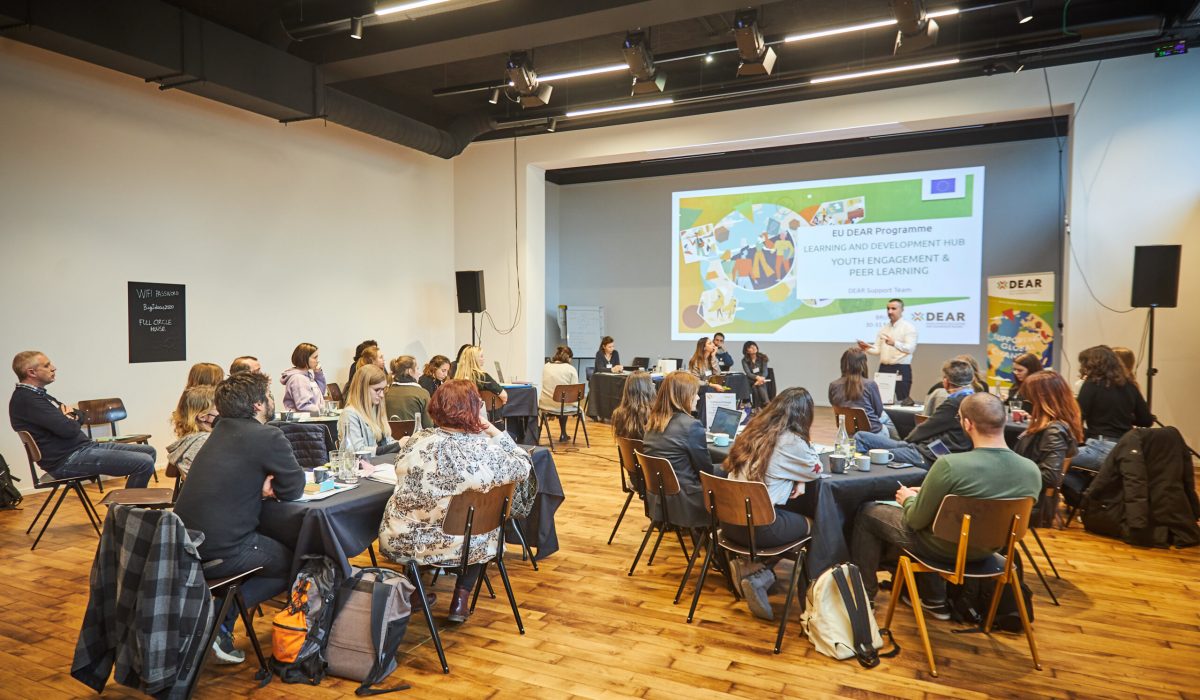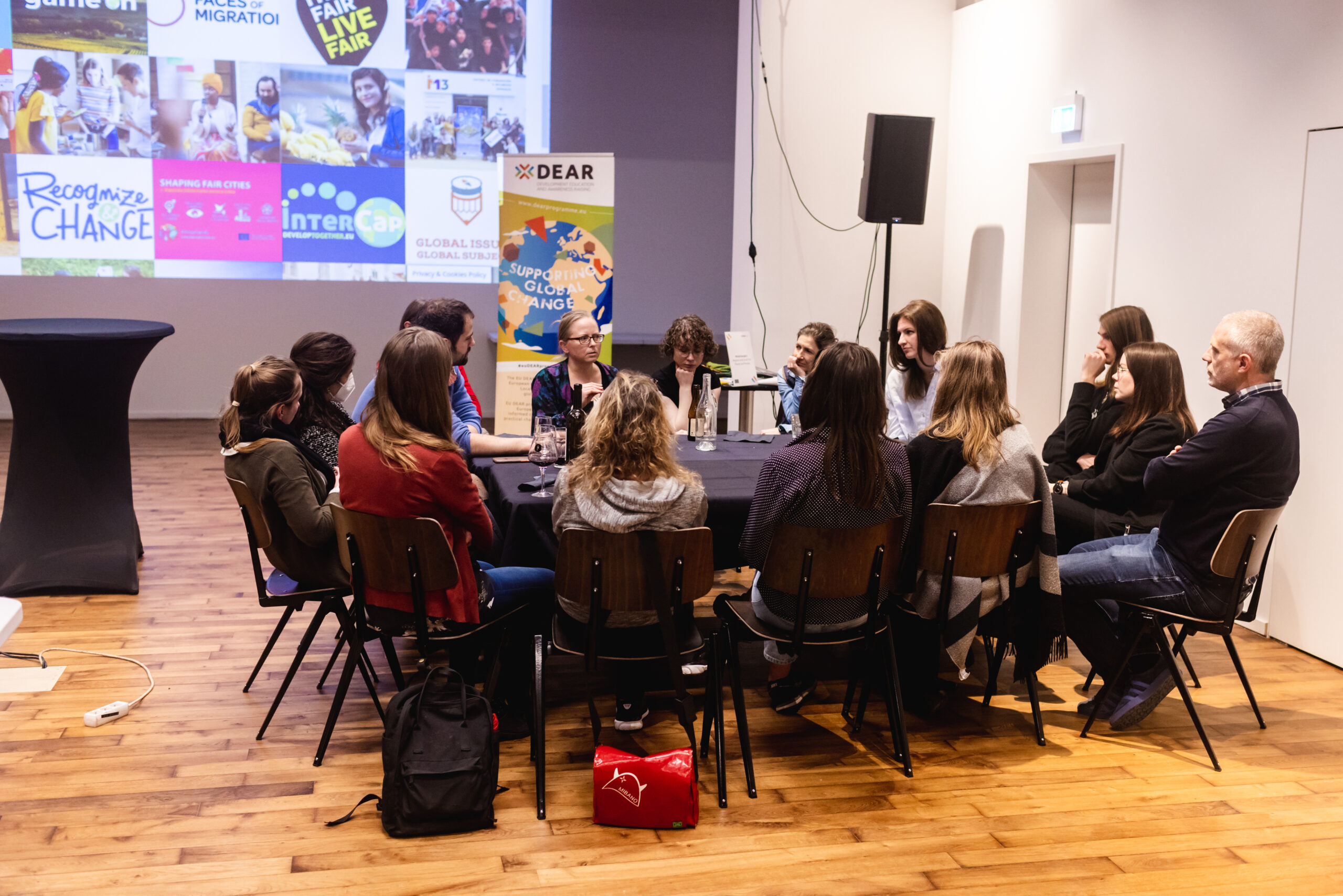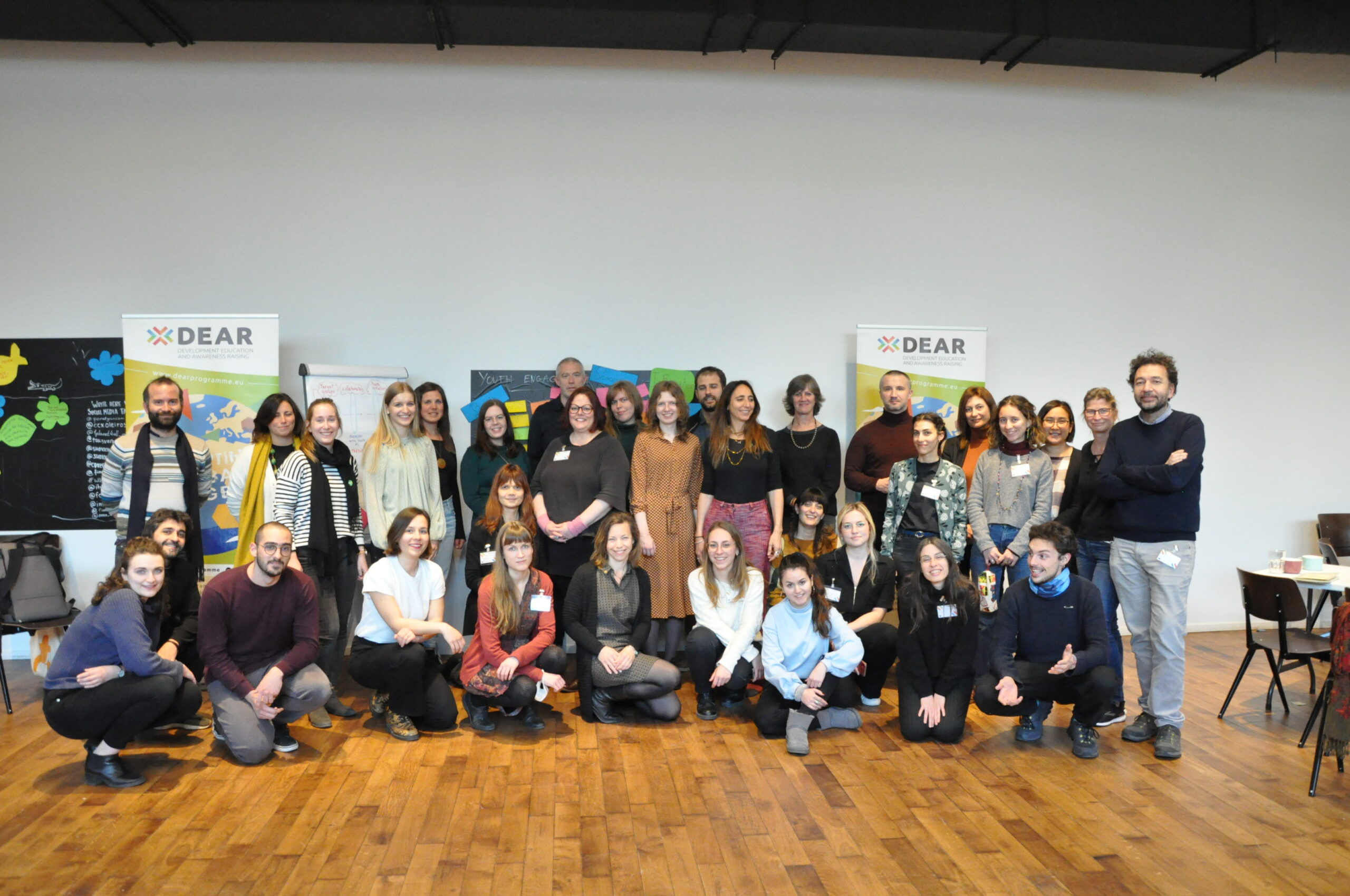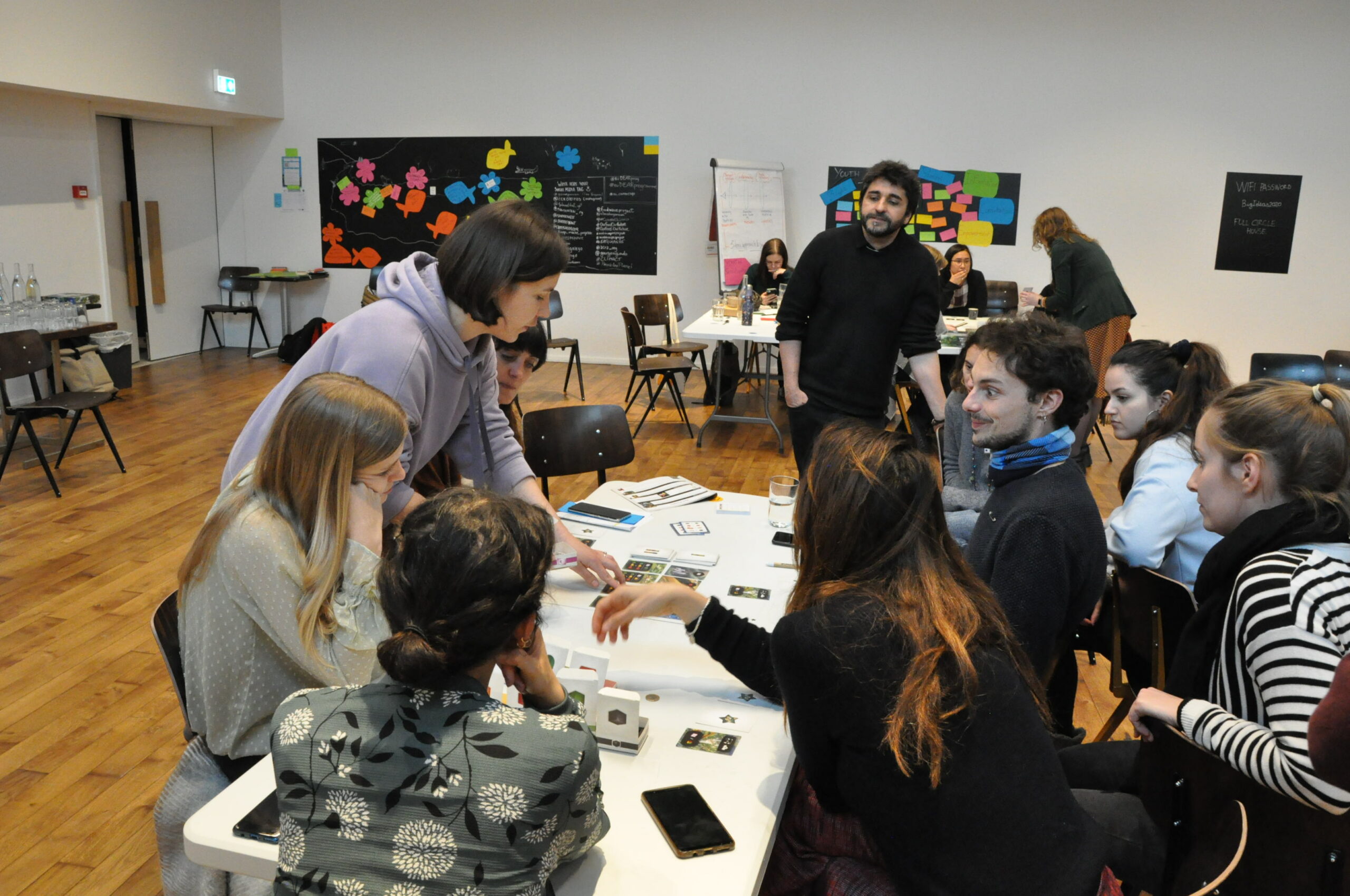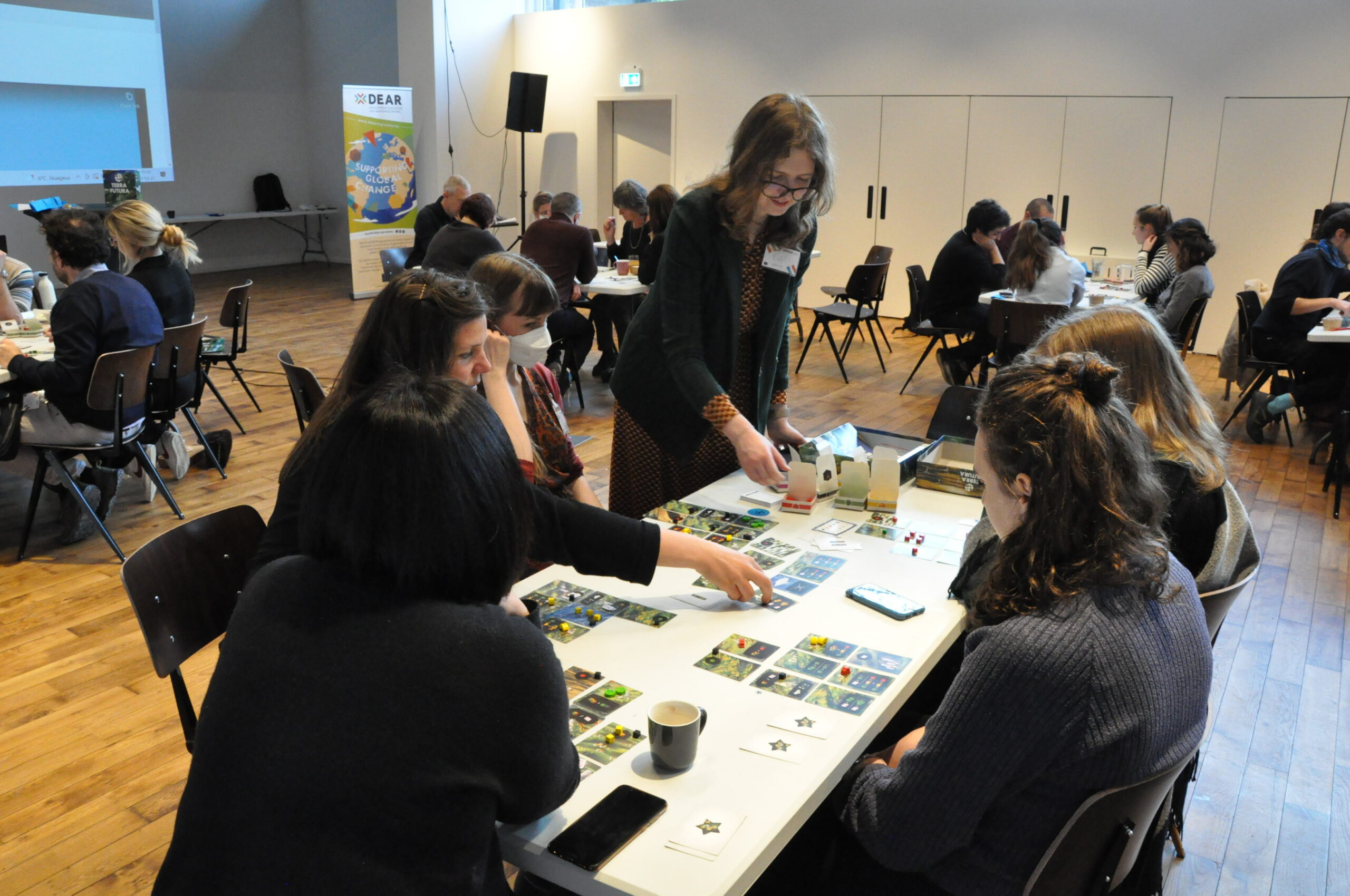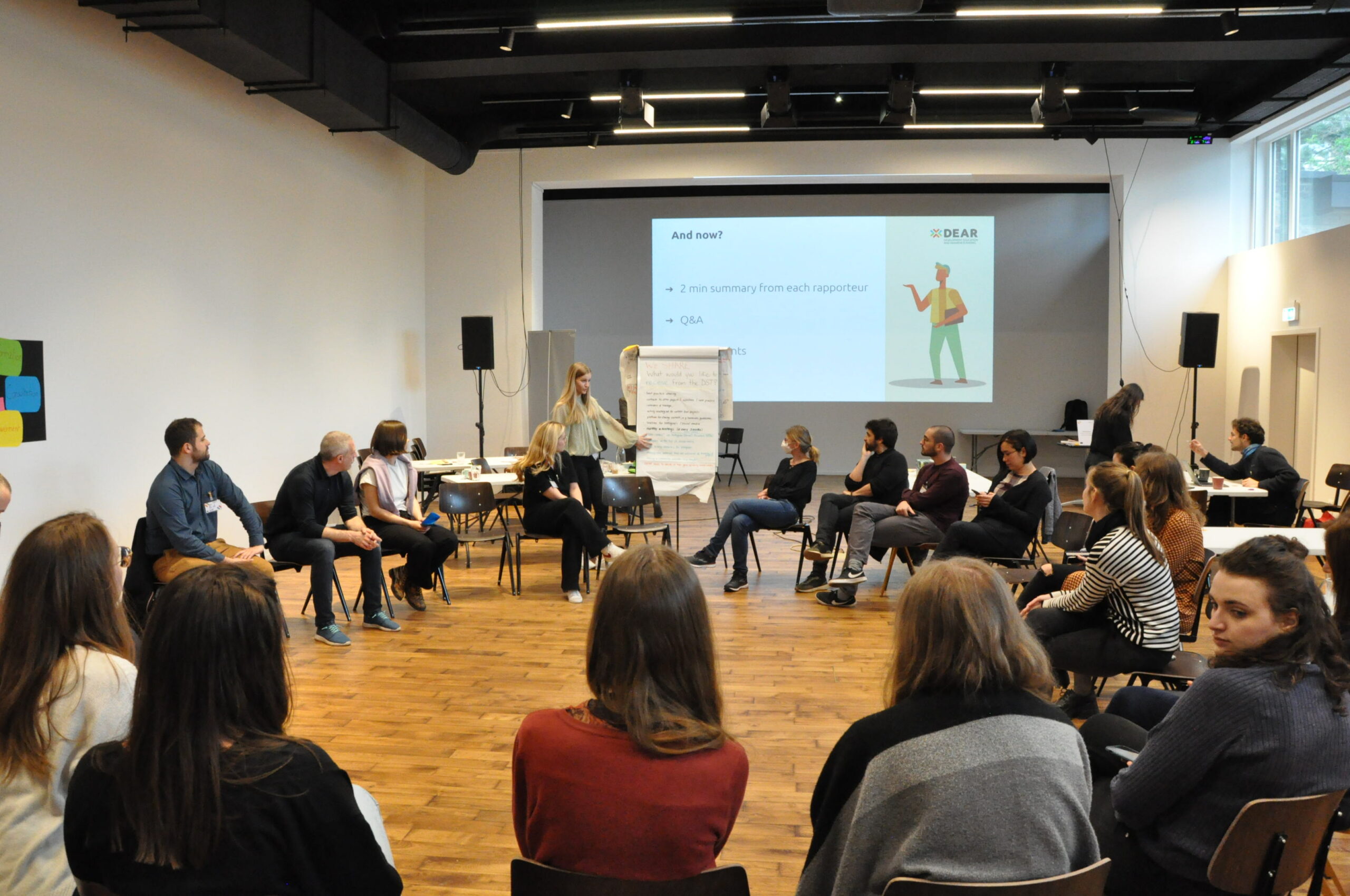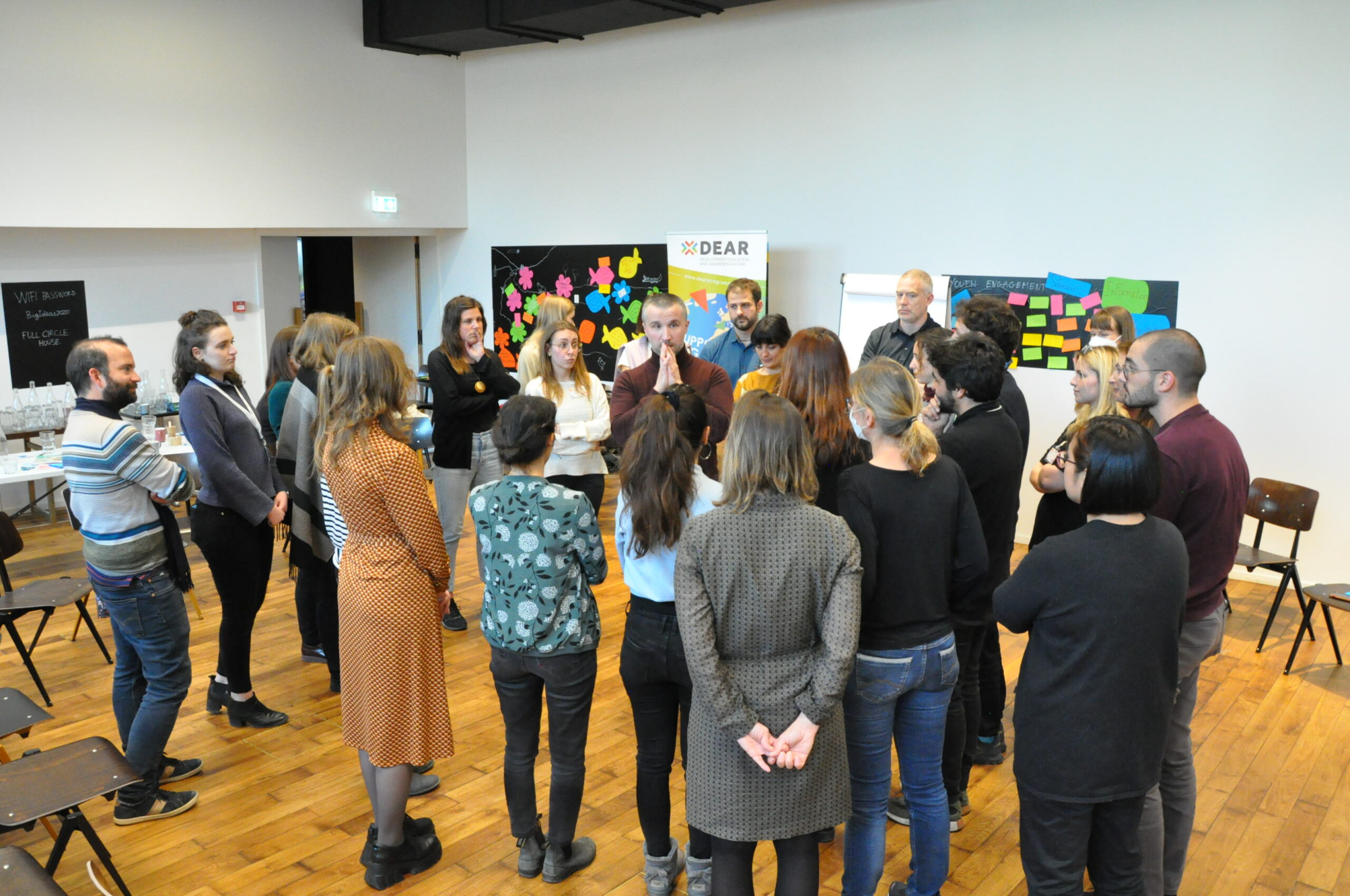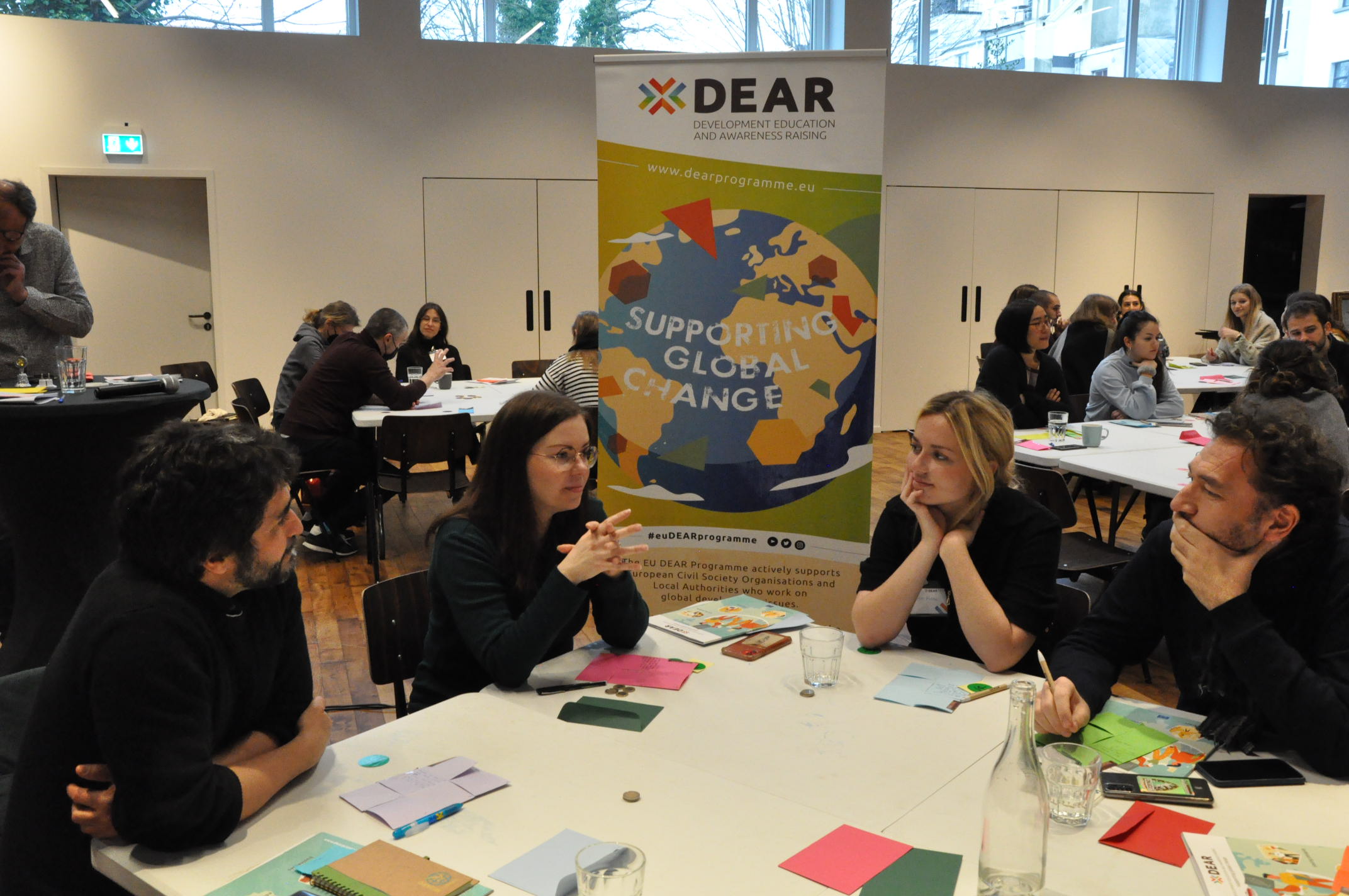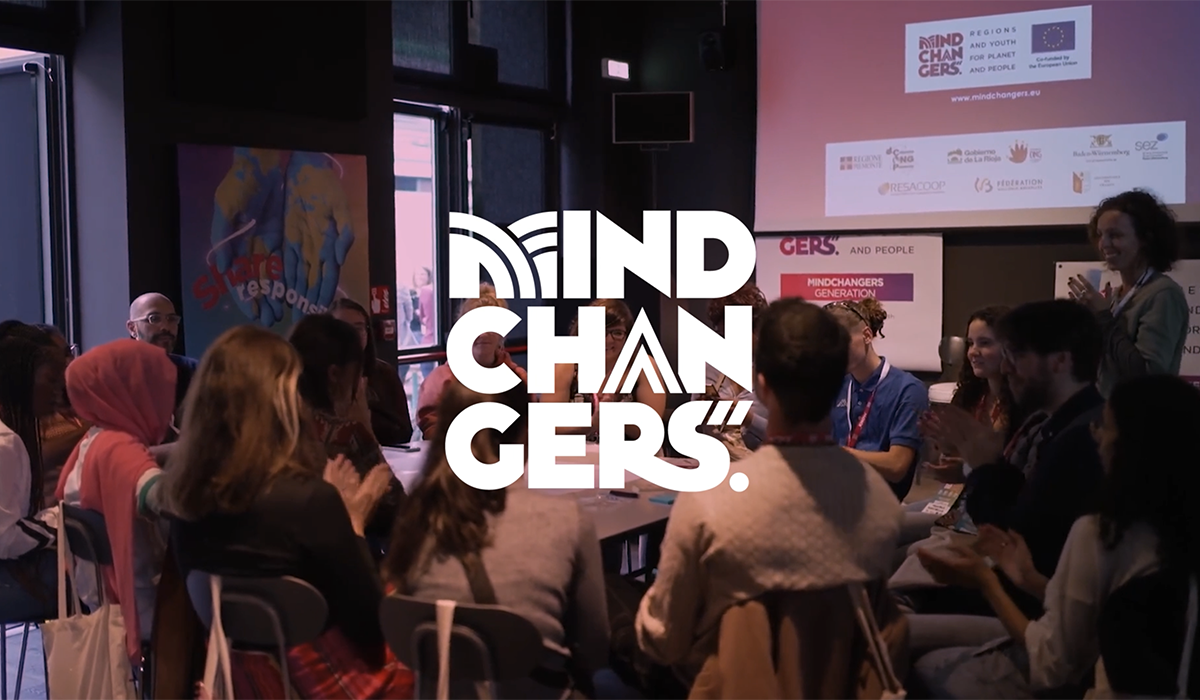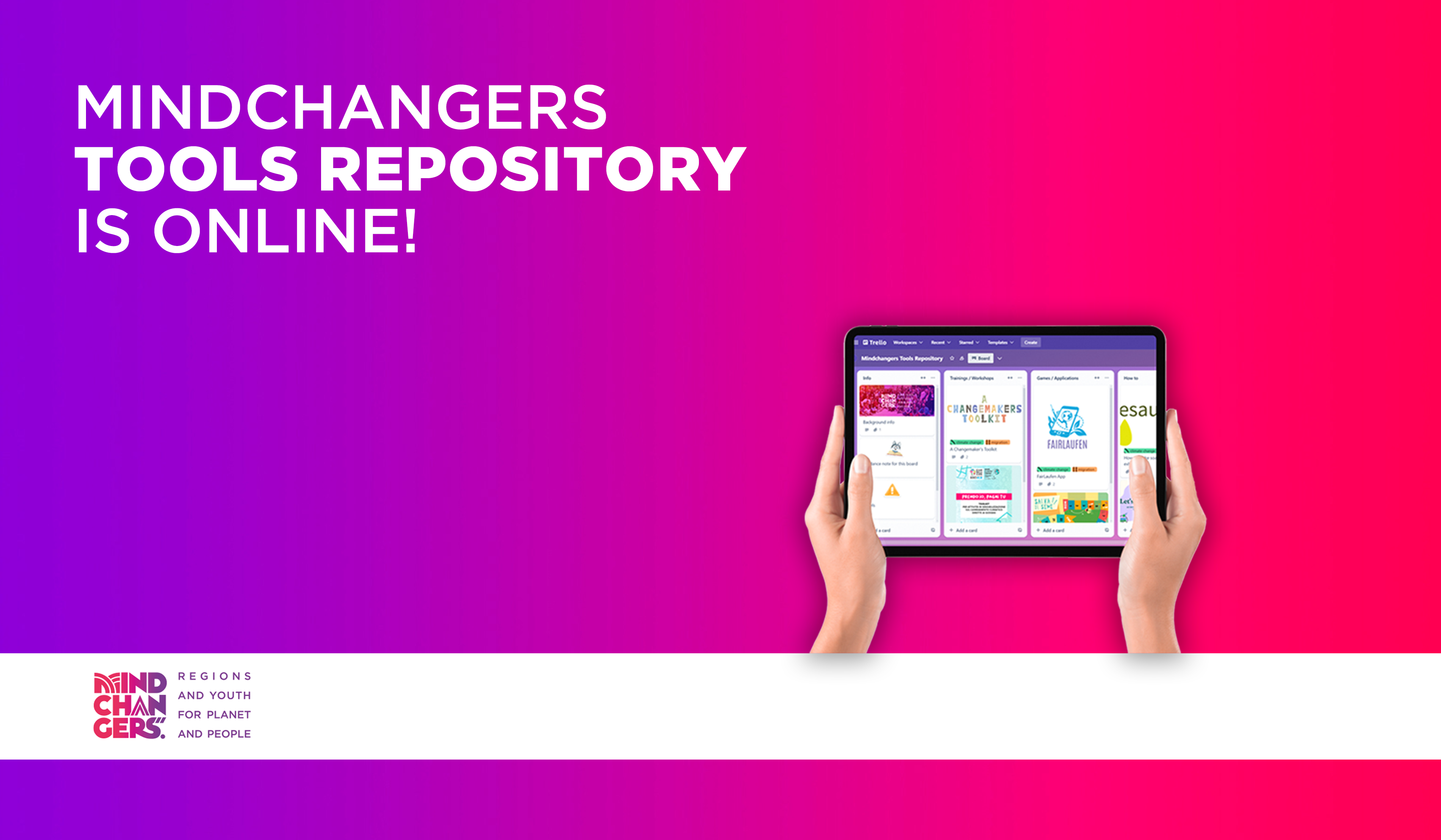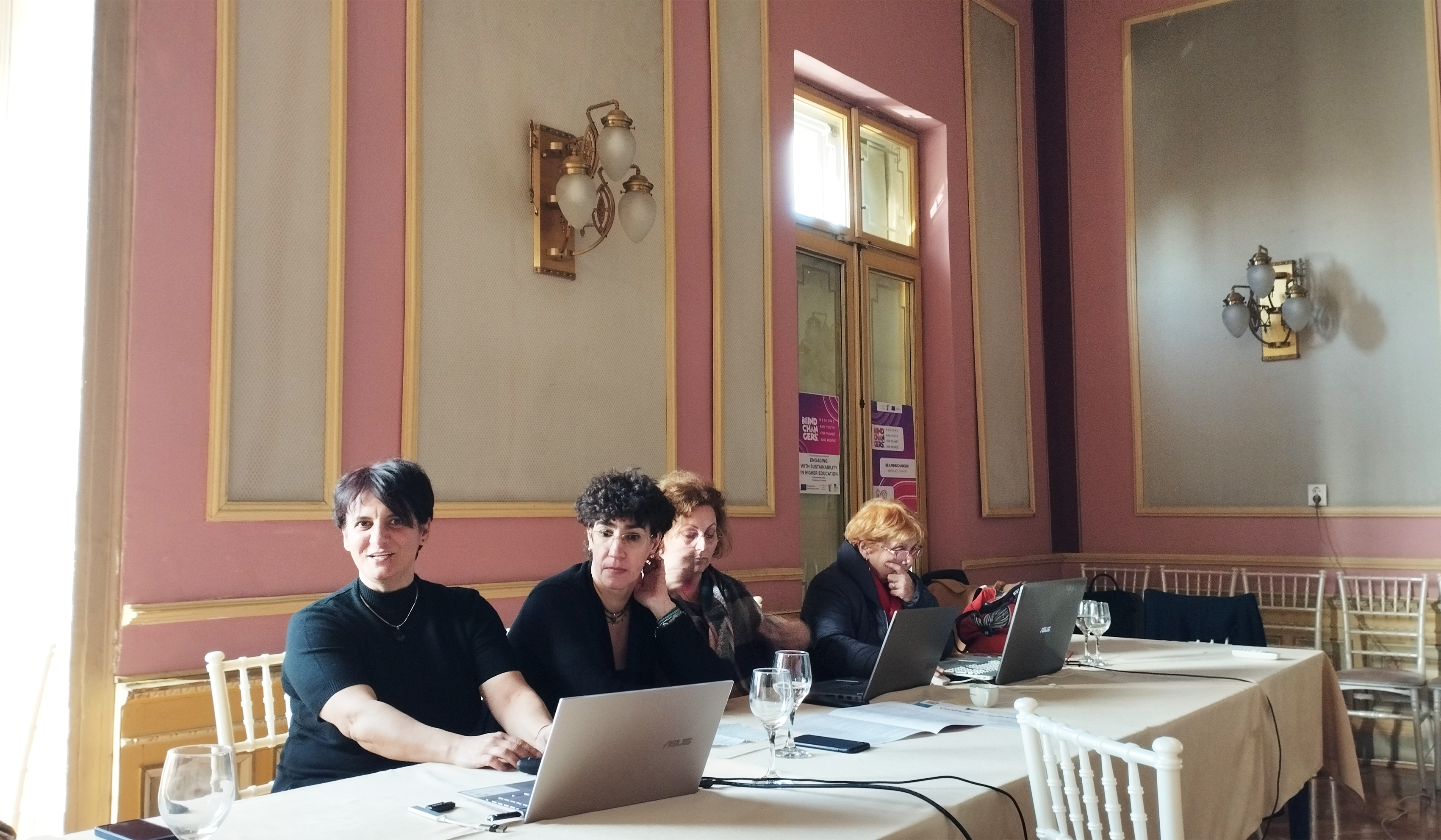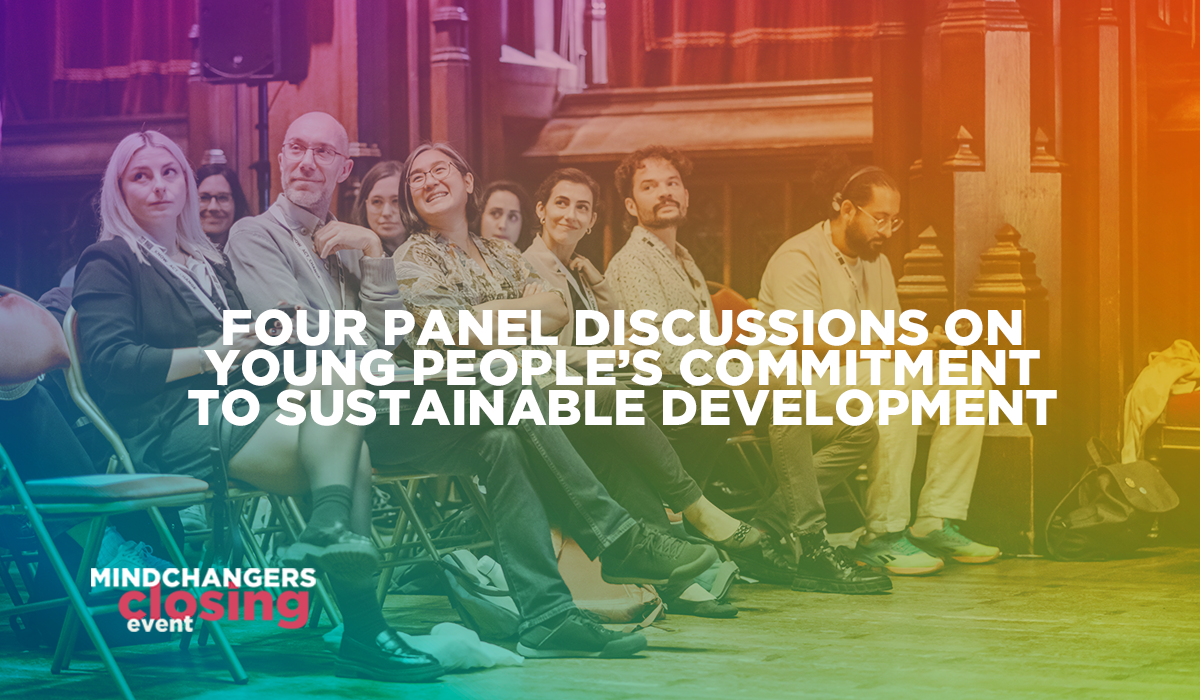Mindchangers joined the DEAR Hub on Youth Engagement and Peer Learning
Do you know how many DEAR programme-funded projects are active in Europe? The answer is ten.
Knowing that will help you have a glimpse into the EU effort to “engage Europeans in worldwide issues of social, economic and environmental development“. Indeed the DEAR programme is the very specific EU funding scheme promoting among other key-topics the collaboration between civil society organisations and local authorities to foster global justice, human rights, sustainable development and democratic participation.
CSOs and LAs are at the forefront in the battle to engage youth towards sustainable development and 2030 agenda.
The DEAR Learning and Development Hubs are the opportunity for these two subjects to gather and exchange best practices and ongoing activities about the respective projects running all around Europe.
At the end of March Béatrice, Giulia and Nicola, members of Mindchangers staff, along with Amina and Chiara, young Mindchangers supporters, participated in the DEAR Learning and Development Hub focusing on “Youth Engagement and Peer Learning”.The rationale of this event was to offer an opportunity for in-depth exploration of the role of young people as peer learners and educators, changemakers and active citizens. The novelty of the Hub was to open participation to young people, and not only project staff, to involve those who are directly concerned with the topics and to really put in practice youth engagement.
On the first day, participants shared inputs, reflections, experiences on the core concepts of the Hub: youth engagement and peer learning.
Knowing that there is no magic formula to get to youth engagement, still there are some considerations that can put a project on the right path. It is important to make clear that young people’s opinions and contributions are taken into consideration. Also, they must feel as equal in the realisation of an activity, just like any staff member or volunteer. This means sharing responsibilities and involving them in the decision-making process. At the same time, engagement can be scary for a number of reasons: it requires time, energy, and to step out of the comfort zone. That is why it is fundamental to think about possible barriers and to find solutions to overcome them. Finally, the context in which young people are engaged must be safe and positive.
Peer learning means learning from each other in both formal and informal ways. At the Hub, it was defined by many as a judgement-free, safe space based on each other’s trust. Peer learning is a methodology that fits perfectly for youth engagement, as it highlights everyone’s contribution to learning, without any hierarchy. But peer learning is also an unexpected outcome when working on a project. In fact, meetings and exchanges between partners lead to learning from each other and to introduce different approaches to your daily work.
In the words of Chiara, one Mindchangers supporter: “the activities were carried out in an inclusive and judgement-free environment. I actively participated in the discussion about critical issues, listened to the different visions and points of view and, all together, we finally arrived at a shared and participatory response”.
Case studies were the focus of the second day of the Hub.
The first one was Youth Bank International, a unique method of involving young people in community activities that shifts the power, money and attitudes based on a simple, flexible and transferable idea – that YouthBanks are funds run by young people to support practical, youth-led projects that address issues that matter to them to improve their communities. Vernon Ringland, who developed the methodology in the late 1990’s, took us outside of our comfort zone with an activity based on the use of money and the meaning we give to money.
Then we met Jorge Aguado and Desiree Birinci, members of the Youth Peace Ambassadors Network, a group of trainers and educators specialized in human rights, conflict-transformation and peacebuilding education.
They presented the methodology of the YPAN for youth engagement that gave us some basic advices on how to develop young-engaging activities, that we could:
- find the focus of your project or network
- make your know-how open to everyone
- guidance and peer-to-peer learning are important
- long-term projects are the key for sustainability
- ask for needs and give space for co-creation
- share simple ways to engage
At the end of the Hub, we had the chance to play with the board game “Terra futura” developed by Game On, one of the DEAR-funded projects that attended the Hub. Game On uses a ‘gamification’ approach to activate younger generations to react to the existential threat of climate change. Playing with Terra futura, that focuses on climate change and its impact on Europe and the Global South, allowed us to connect with the other participants also on the fun and competition level, and at the same time reflect on current global economic system, its effects on the environment and possible alternatives, such as the circular economy.
The DEAR Learning and Development Hub made us feel part of a bigger community, recognising the fundamental role of young people for the achievement of a sustainable and just world. As Chiara pointed out, the Hub was not only a great opportunity to share common opinions and experiences on its core topics, but even to put them into practice. Its added value has been practising youth engagement and peer learning, indeed. The Hub reflected what youth engagement and peer learning are and how they can be realised. This experience showed that young people should have the chance to be part of the organisational process from the very beginning, being able to focalize on the problems and together find successful solutions.


